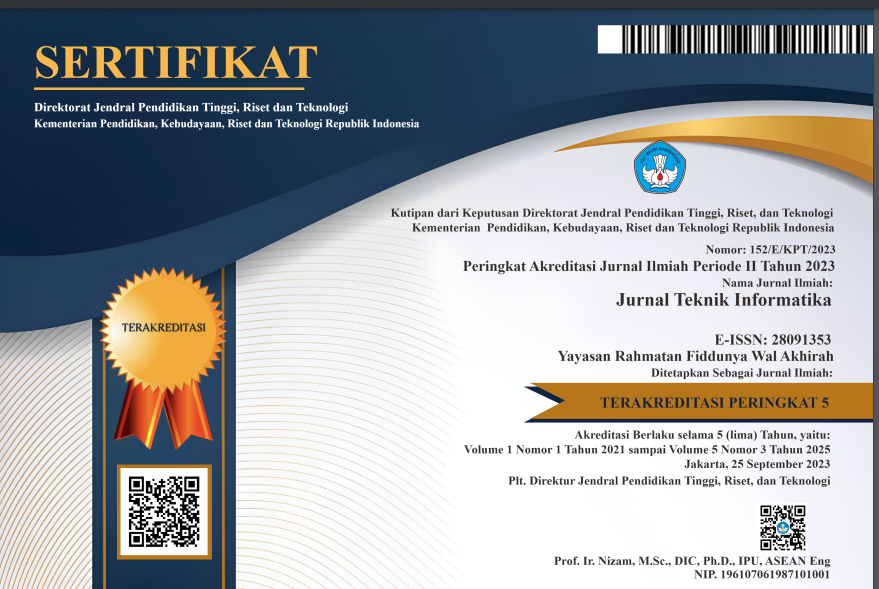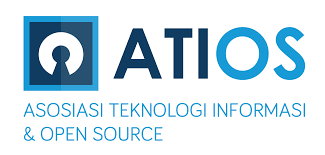Personalisasi Gamifikasi Pembelajaran Transformasi Pendidikan Pemrograman Berbasis Mobile dengan Pendekatan MBTI
DOI:
https://doi.org/10.58794/jekin.v4i3.1076Keywords:
Gamifikasi, MBTI, e-learning, User Centered DesignAbstract
Penelitian ini mengeksplorasi potensi gamifikasi personalisasi dalam mengatasi tantangan keterlibatan dan motivasi dalam pendidikan pemrograman. Dengan memanfaatkan kerangka Myers-Briggs Type Indicator (MBTI), elemen gamifikasi seperti leaderboard, badges, dan progress bar disesuaikan dengan preferensi individu mahasiswa untuk menciptakan pengalaman belajar yang lebih menarik. Penelitian ini menggunakan pendekatan User-Centered Design (UCD) yang mengacu pada prinsip ISO 9241-210 untuk mengembangkan prototipe antarmuka UI high-fidelity. Evaluasi heuristik dilakukan oleh pakar untuk menilai kegunaan dan efektivitas desain. Temuan utama penelitian ini menyoroti bahwa elemen gamifikasi yang disesuaikan dengan preferensi MBTI dapat memenuhi kebutuhan pembelajar yang beragam dan meningkatkan interaksi dengan platform. Penelitian ini menunjukkan potensi gamifikasi berbasis MBTI sebagai strategi inovatif untuk pendidikan personalisasi. Penelitian lanjutan akan berfokus pada implementasi platform menjadi sistem fungsional serta pengembangan fitur untuk basis pengguna yang lebih luas.
Downloads
References
K. D Cuervo-Cely, F. Restrepo-Calle, and J. J Ramírez-Echeverry, “Effect of Gamification on the Motivation of Computer Programming Students,” Journal of Information Technology Education: Research, vol. 21, pp. 001–023, 2022, doi: 10.28945/4917.
D. Kucak and M. Kucak, “Gamification in Computer Programming Education – Systematic Literature Review,” in 2022 45th Jubilee International Convention on Information, Communication and Electronic Technology (MIPRO), IEEE, May 2022, pp. 517–520. doi: 10.23919/MIPRO55190.2022.9803457.
D. Maryono, Budiyono, Sajidan, and M. Akhyar, “Implementation of Gamification in Programming Learning: Literature Review,” International Journal of Information and Education Technology, vol. 12, no. 12, pp. 1448–1457, 2022, doi: 10.18178/ijiet.2022.12.12.1771.
A. Rojas-López, E. G. Rincón-Flores, J. Mena, F. J. García-Peñalvo, and M. S. Ramírez-Montoya, “Engagement in the course of programming in higher education through the use of gamification,” Univers Access Inf Soc, vol. 18, no. 3, pp. 583–597, Aug. 2019, doi: 10.1007/s10209-019-00680-z.
V. R. Aulia, R. Nadlifatin, and A. P. Subriadi, “The effect of gamification elements on user buying intention in an on- demand service platform,” Procedia Comput Sci, vol. 234, pp. 1004–1011, 2024, doi: 10.1016/j.procs.2024.03.090.
W. Oliveira et al., “The effects of personalized gamification on students’ flow experience, motivation, and enjoyment,”
Smart Learning Environments, vol. 9, no. 1, p. 16, Dec. 2022, doi: 10.1186/s40561-022-00194-x.
T. Puspa Rinjeni, N. Aini Rakhmawati, and R. Nadlifatin, “Design of Academic Gamification Model Based on Myers- Briggs Type Indicator (MBTI) Through Pre-experimental Design,” Journal of Information Technology Education: Research, vol. 23, p. 018, 2024, doi: 10.28945/5314.
T. P. Rinjeni, N. A. Rakhmawati, and R. Nadlifatin, “A Systematic Literature Review on Personalized Adaptive Gamification,” in 2022 International Conference on Computer Engineering, Network, and Intelligent Multimedia (CENIM), IEEE, Nov. 2022, pp. 218–223. doi: 10.1109/CENIM56801.2022.10037386.
R. Pereira, C. J. Costa, and J. T. Aparicio, “Gamification to support programming learning,” in 2017 12th Iberian Conference on Information Systems and Technologies (CISTI), IEEE, Jun. 2017, pp. 1–6. doi: 10.23919/CISTI.2017.7975788.
K. Duggal, L. R. Gupta, and P. Singh, “Gamification and Machine Learning Inspired Approach for Classroom Engagement and Learning,” Math Probl Eng, vol. 2021, pp. 1–18, May 2021, doi: 10.1155/2021/9922775.
H. Kang and G. P. Kusuma, “The Effectiveness of Personality-Based Gamification Model for Foreign Vocabulary Online Learning,” Advances in Science, Technology and Engineering Systems Journal, vol. 5, no. 2, pp. 261–271, 2020, doi: 10.25046/aj050234.
S. Fatahi, “An experimental study on an adaptive e-learning environment based on learner’s personality and emotion,”
Educ Inf Technol (Dordr), vol. 24, no. 4, pp. 2225–2241, Jul. 2019, doi: 10.1007/s10639-019-09868-5.
A. Khamparia and B. Pandey, “Effects of visual map embedded approach on students learning performance using Briggs–Myers learning style in word puzzle gaming course,” Computers & Electrical Engineering, vol. 66, pp. 531– 540, Feb. 2018, doi: 10.1016/j.compeleceng.2017.12.041.
S. Bennani, A. Maalel, and H. Ben Ghezala, “AGE-Learn: Ontology-Based Representation of Personalized Gamification in E-learning,” Procedia Comput Sci, vol. 176, pp. 1005–1014, 2020, doi: 10.1016/j.procs.2020.09.096.
L. Rodrigues et al., “How Personalization Affects Motivation in Gamified Review Assessments,” Int J Artif Intell Educ, vol. 34, no. 2, pp. 147–184, Jun. 2024, doi: 10.1007/s40593-022-00326-x.
International Organization for Standardization, “ISO 9241-210:2010 Ergonomics of human-system interaction Part 210: Human-centred design for interactive systems,” Mar. 2010.
P. Thongthip, K. Intawong, S. Chernbumroong, P. Worragin, Y. Tongpaeng, and K. Puritat, “Design and analysis of personalized serious games for information literacy: catering to introverted and extraverted individuals through game elements,” Humanit Soc Sci Commun, vol. 11, no. 1, p. 725, Jun. 2024, doi: 10.1057/s41599-024-03172-5.
Downloads
Published
Issue
Section
License
Copyright (c) 2024 JEKIN - Jurnal Teknik Informatika

This work is licensed under a Creative Commons Attribution-ShareAlike 4.0 International License.
JEKIN-Journal of Informatics Engineering provides open access to anyone, ensuring that the information and findings in the article are useful to everyone. This journal article's entire contents can be accessed and downloaded for free. In accordance with the Creative Commons Attribution-ShareAlike 4.0 International License.

JEKIN-Journal of Informatics Engineering is licensed under a Creative Commons Attribution-ShareAlike 4.0














